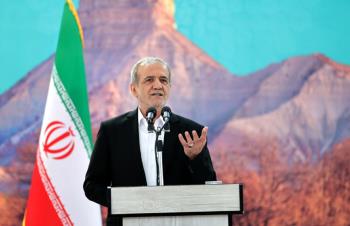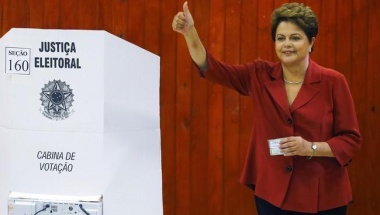According to Reuters, Brazil's leftist President Dilma Rousseff narrowly won re-election on Sunday after convincing voters that her party's strong record of reducing poverty over the last 12 years was more important than a recent economic slump.
After one of the closest, most divisive campaigns in Brazil in decades, Rousseff won 51.6 percent of votes in a runoff against centrist opposition leader Aecio Neves, who won 48.4 percent with more than 99 percent of the votes tallied.
The result means another four years in power for the Workers' Party, which since 2003 has virtually transformed Brazil - lifting 40 million from poverty, reducing unemployment to record lows and making big inroads against hunger in what remains one of the world's most unequal countries.
The party's star has faded recently. The economy has slowed dramatically under Rousseff's heavy-handed and often unpredictable policies, making Brazil's glory days of robust growth last decade an ever-more distant memory.
Numerous corruption scandals, high inflation and frustration over poor public services like health care tempted many to consider a switch to Neves' more pro-business agenda.
Yet Rousseff and her supporters spent the campaign warning voters, especially the poor, that a vote for the PSDB would mean a return to the less compassionate, more unequal Brazil of the 1990s - an argument that Neves rigorously denied, but ultimately prevailed anyway.
"We need Dilma to continue the programs that improve the lives of those in need," said Livia Roma, 19, a university student in Sao Paulo, as she voted on Sunday. "I didn't vote for myself, but for the minorities and less fortunate classes."
Investors have generally disliked Rousseff's interventionist management of state-run companies and other sectors of the economy, and Brazil's financial markets plummeted last week when polls showed she was likely to win a second term. They could see another selloff on Monday.



























